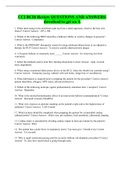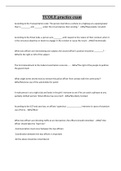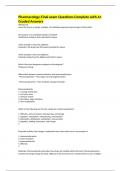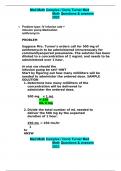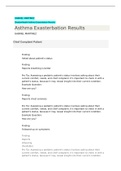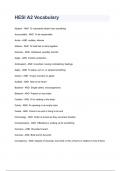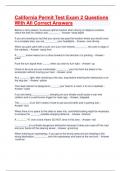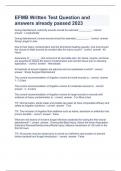Exam (elaborations)
CCI RCIS Review QUESTIONS AND ANSWERS| download to get an A
- Course
- Institution
1. When intervening in the mid/distal right leg from a radial approach, which is the best wire choice? Correct Answer: .035 x 260 2. Which of the following BEST describes a balloon's ability to yield to changes in pressure? Correct Answer: Compliance 3. What is the PRIMARY therapeutic reaso...
[Show more]
